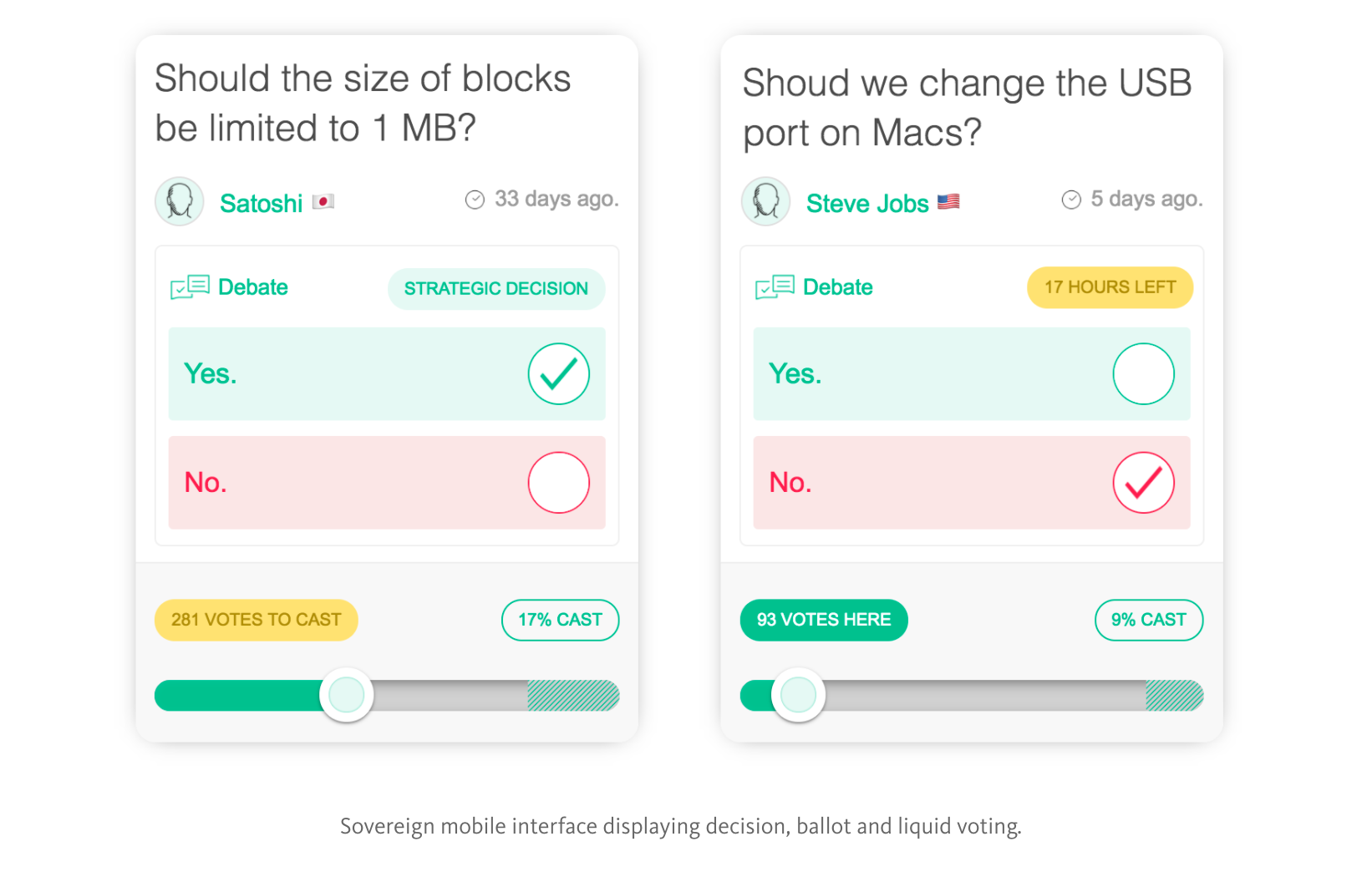Our ability to make good decisions is terrible. Let's say you have a country where one person gets one vote and everyone votes on everything – so 100% participation. Obviously, whatever the majority decides will be what most people want, right? Or at least be best for the most amount of people?
Let's look at some ways this can, and does, go wrong:
- Preference Falsification. People sometimes hide what they really want because of social or political pressure. Among other things this allows dictators to stay in power because everyone believes everyone else wants them in power. If they had perfect information, they'd realize how flimsy the dictator's support is.
- Introspection Illusion. We are bad at accurately knowing how much we don't know. If you don't know the details of a certain decision, but confidently think you do, then you might as well flip a coin to make the decision that will lead to your desired outcome.
- Poorly Designed Questions. Even the best designed questions have a lot of subtext and nuance baked in. One generally needs to go read a few explanations, analyses, and arguments to deduce what is really at stake for her personally.
- No Alternate Choices. The system described above does not allow one to vote for the best outcome, but rather the outcome they like best that they believe has a chance of winning. A system like ranked voting would allow us to see what result people really wanted without forcing them to strategize their vote.
So even in the unrealistic world of 100% participation and equal representation, we have good reasons to doubt the majority outcomes of a one-person-one-vote system.
What Can We Do
Humans have some built-in deficiencies that just aren't accounted for in the mainstream conception of voting and decision making. The ones outlined above are just a few of many (fear, manipulation, etc.). We need a system that accounts for and neutralizes these deficiencies to get the best outcomes.
Let's outline some goals:
- 100% Participation. I know I just called this unrealistic, but I'm going to show you how it's possible in a minute.
- Promote Wisdom. Not every voter or contributor is equally qualified to weigh in on every decision. Shouldn't we allow the most knowledgable to have pull commensurate with their knowledge that the voting community agrees is relevant?
- Real Time Metrics and Coordination. What if we could see how a vote in one direction or another would effect the results as they stand now? Or get an alert if outcomes have changed? We wouldn't need to rely on questionable polling to get a sense for where our fellow voters are at.
Liquid Democracy
The main concept that allows us to have all these things has a few names: Proxy Voting, Liquid Democracy, Liquid Voting, Delegative Democracy.
The main idea is that you can give your vote to other people. That way, if you're not present for a decision, you've still participated in the vote because you said you trust this person to vote in your place. Your preferences contribute to the outcome, albeit indirectly.
Now let's say each person in the group, like a country, has 10 votes to distribute. And let's say that decisions are categorized by subject matter. So some decisions are about food, some are about music, etc. This allows us to give our votes out to certain people depending on the category of the decision.
Maybe I trust Dan to make good decisions about intellectual property on my behalf, but I want Sarah to vote for me if the decision has to do with public lands.
Now we see a natural weighting of expertise, based not directly on any credentials a person may have, but the level of trust they have from people in the group on certain topics. There is also instant accountability. If one of your proxies makes a vote you don't like, you give your vote to someone else. The people in the system who consistently build support will reliably be the ones delivering the outcomes that truly make people happy.
No longer do we have a situation where I have to vote on an issue I really know nothing about. All I have to know is that I trust this other person to do the right thing, based on their previous votes and public comments. If they turn out to be frauds or deviate from previous policy preferences, they'll quickly lose support.
Collateral Benefits
Some nice things fall out of a system like this. For one, the focus shifts to issues and outcomes rather than identity. Instead of me reliably being able to tell if I disagree with someone on an issue by their party affiliation, I might now side with a Republican on certain issues and a Democrat on others. A person can have broad support in a certain subject area without having to vote a certain way in many others in order to keep voters' proxies.

Second, since proxies are set in advance of a decision, it's possible to inform voters how their own votes might influence a decision. One could imagine an interface that showed you a probability of one outcome over another based on whether you give your proxy to this person or that person. The technical execution of that would be extremely complicated, but I think it's worth solving the hard problems for.
Third, it now starts to become feasible to have a large number of rolling decisions in an arbitrarily large group and still have 100% contribution. There may have been 100 decisions throughout the day, and I didn't directly vote on any of them, but I can see how my proxies influenced the outcomes and rebalance them accordingly.
Fourth, we can now start to see how good decisions could be made by all the members of a group and not just shareholders, elected officials, or the other flawed efficiencies we've previously relied on. This enables new types of organizations to form, such as user-owned platforms and non-cryptocurrency based Decentralized Autonomous Organizations.*
It's Not Perfect!
I'm not saying this idea is perfect, but it doesn't have to be. It just has to be better than what we have today. And I think the system outlined above is better by a mile.
The study of voting systems is not my expertise. It's a complex, theoretical subject and I don't have all the answers. Different voting systems reveal certain mechanics in human decision making that are not intuitive. We naturally feel that making a decision should be straightforward, and that we are absolutely able to choose outcomes that are in our best interest. But I think more and more we realize we need a system to account for our own biases, inaccurate perceptions, and imperfect information.
A future where we have such a system inherently avoids many of the societal problems we have today that we'd all like to fix. And perhaps it would allow us to tackle singular, catastrophic problems like climate change far more quickly and efficiently.
Discuss this post on, our discussion page, Hacker News and Reddit.
* Previous arguments against direct democracy cite people making impulsive, reactionary decisions. We tend to believe that the slowness of Congress can be a feature rather than a bug, because it keeps us from shooting ourselves in the foot out of impatience. A proxy voting system could be designed to mitigate this danger as well. Perhaps there are built-in deliberation periods for certain types of decisions, for example.
Cover image by Perry Grone on Unsplash
